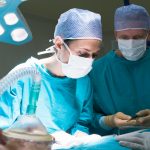The Greater Copenhagen Health Science Partners (GCHSP) now launches two new research collaborations to improve treatment for patients suffering from defects of the genitals and urinary system and to ensure critical surveillance of patients suffering from disorders in the brain and nervous system. The new Clinical Academic Groups (CAGs) have just been approved politically and can now commence collaboration across universities and hospitals and help make sure the results of new translational research benefit patients faster.
The Technical University of Denmark, the University of Copenhagen, Region Zealand and the Capital Region of Denmark have a shared vision: to improve prevention and offer more precise diagnoses and better treatment of patients. This is the objective of all CAGs, which are cross-disciplinary collaborations between researchers and clinicians at universities and hospitals.
Now two new CAGs are added to the GCHSP partnership, which bring together clinical practice, research, education and competency development within defects of the genitals and urinary system and disorders in the brain and nervous system.
‘Since 2017, we have established a total of 18 strong research collaborations. They have contributed with important research and strengthened cooperation at various levels across health science and health tech organisations. These projects would never have seen the light of day if it had not been for the CAGs. This is encouraging and confirms our belief that the work of the research groups will benefit the patients. I look forward to following the two new CAGs, and I am certain that they too will help make sure we can develop and implement treatments faster of benefit to patients’, says Director of GCHSP Per Jørgensen.
Due to the Covid-19 situation, the presentation of the new CAGs has been postponed to a launch event this autumn, where they and the four CAGs appointed last year will present their vision for future research and treatment.
Brief description of the two new CAGs
Treating infertility and improving the quality of life for patients with defects of the genitals and urinary system
Infertility is a growing problem in Denmark and other countries, and the WHO estimates that more than 48 million couples and 186 million individuals globally suffer from infertility. Defects of the urogenital organs such as the genitals and subsequent inability to conceive may greatly affect the individual’s sense of identity and can be a traumatic experience for young men and women who wish to have children biologically. Aside from birth defects, infertility may be a result of chemotherapy and radiation in connection with cancer treatment. Around 23-30 % of survivors of childhood cancer become permanently infertile. Urogenital defects may also affect the bladder and urinary tract and lead to urinary incontinence, urinary tract infection and kidney failure.
Professor Magdalena Fossum from Rigshospitalet and Professor Eva Hoffmann from the University of Copenhagen wish to improve the quality of life and reduce morbidity for patients with defects of the genitals and urinary system. By using surgical methods and techniques for producing artificial organs, tissue reconstruction and therapeutic stem cell therapy they aim to strengthen the treatment of patients suffering from infertility, severe complications and repeated surgery due to urogenital birth defects or urogenital defects acquired in life.
Data-driven knowledge acquired via eDevices will ensure better prevention and treatment of neurological disorders
Neurological disorders are responsible for around 12 per cent of the Danish healthcare expenditure and represent a fifth of the total healthcare burden. The number of patients suffering from neurological disorders is increasing alongside the ageing population and increase in patients with lifestyle disorders and multiple diseases. Most patients suffering from neurological disorders experience cognitive difficulties even in the early stages of the disease, which may mean that they are unable to react to the disorder. E.g., patients may not notice symptoms of epileptic seizures, the result being that they never get the right treatment or do not receive treatment in time. Earlier disease detection and preventive medicine can improve neurological patients’ quality of life and enable them to work and be socially active.
Professor Troels Wesenberg Kjær from the Zealand University Hospital in Roskilde and Associate Professor Henriette Langstrup from the University of Copenhagen wish to take brain and technology research to the next level. Their CAG represents a cross-disciplinary research collaboration within neurological disorders such as epilepsy, impairments to the visual, vestibular and sensory systems and rehabilitation. Together they will improve diagnostics and treatment for patients with neurological disorders by strengthening digital patient monitoring – a tool which is technically advanced, meaningful for clinicians and patients and ethically sustainable. Using portable or implanted eDevices in clinical practice and patients’ everyday lives, BIG DATA and artificial intelligence will collect and analyse knowledge about the body’s neurological functions with a view to predicting disease development and offering faster, better treatment.
About the Greater Copenhagen Health Science Partners
The Greater Copenhagen Health Science Partners is a partnership between the University of Copenhagen, the Technical University of Copenhagen, the Capital Region of Denmark and Region Zealand. The partnership is established to strengthen the health sciences and research’s effect on clinical practice of benefit to patients. This is done by strengthening the cooperation between clinical researchers in hospitals and basic researchers in universities.
The value of partnering researchers across hospitals and universities is that they learn from each other and create new scientific research, resulting in faster, better treatment for patients.
The first CAGs were appointed in June 2017, and today the GCHSP partnership numbers 18 CAGs.
The partnership paves the way for a strengthening of basic, translational and clinical research, innovation and clinical development in the Greater Copenhagen area. Together, the four partner organisations support larger projects and priorities within health research and thus improve the health of patients and citizens in Denmark.








